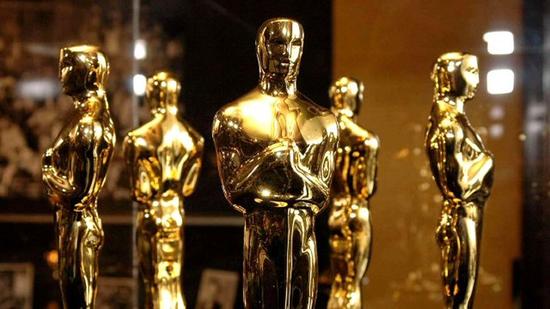
The Academy Awards have been criticized for their lack of racial diversity. In recent years, this has started to change, with Latinos winning Oscars for Best Director, and two movies with a Black actor, Black actress, and Black director that both won Best Picture.
At this year's Oscars, we had the first Middle Eastern winner for Best Actor.
Despite this increasing diversity, most winners are still monoracial. Out of hundreds of winners in Oscars' 90-year-history, these are the few multiracials.
Halle Berry
Best Actress

When she won in 2002, she was the first African-American to win in that category. That same year, the winner for Best Actor was also Black. It was the only time in Oscars' 90-year history that Best Actor and Actress were both minorities. Her mother is White.
Ben Kingsley
Best Actor

His mother was White and his birth name was Krishna Bhanji because his father was from India. His award was for portraying the man who is possibly the most famous person from India.
Anthony Quinn
Best Supporting Actor (won twice)

He won his 1st Oscar for playing a Latino and won his 2nd one for playing a White Frenchman. He also portrayed American Indians, East Asians, and Middle Easterners. One of his grandparents was White and the other 3 were Latino, including indigenous ancestry.
Hilary Swank
Best Actress (won twice)

Like Anthony Quinn, she's a White-Latino two-time winner for acting. She's won more Oscars than any other Latina. Her grandma was Latin American.
Jordan Peele
Best Screenplay

The movie that got him his Oscar is about an interracial couple that he also directed. It was the first movie by a Black first-time director to make $100 million. His mother is White.
Yul Brynner
Best Actor

The characters he played included Latinos, American Indians, Middle Easterners, and East Asians. But he won for playing a Southeast Asian. In real life, he was from Russia and was part Buryat, which is an ethnic group in Russia near Mongolia.
Prince
Best Score

He was an African-American who was generationally mixed; all 4 grandparents were from Louisiana, where generations of multi-ethnic Black families is not unusual. His music for a movie won him an Oscar, and he was the lead actor in that movie too.
Lionel Ritchie
Best Song

Like Prince, he's an African-American who's generationally mixed, which he learned more about when he appeared on a TV series where celebrities find out their ancestry. You can watch that episode here.
Carly Simon
Best Song

She found out she's "10%" Black because her Latino grandma was of African descent. She was on a TV series where celebrities discover their ancestry.
Malik Bendjelloul
Best Documentary

He grew up in Sweden, where his White mother is from. One year after he won his Oscar, he committed suicide.
Irene Cara
Best Song

The first mixed-race woman to win an Academy Award and the youngest multiracial to win one (male or female). She won the award for songwriting, but she was also an actress who played Latinos and Blacks. In real life, she's both.
Robert Lopez
Best Song

Like Irene Cara, he's a mixed Latino who won for songwriting. It was for a movie which is the most financially successful animated movie of all time.
He is the first Filipino to win an Academy Award. He's also one of the few people (of any race) to win an Oscar, an Emmy, a Grammy and a Tony, and is the youngest person and the first Asian to have done so.
More mixed-race Oscar winners:
White-Latino
Mercedes Ruehl
White/Cuban
Best Supporting Actress
White-Black
Ezra Edelman
White/Jewish/Black
Best Documentary
T.J. Martin
White/Black
Best Documentary
White-Asian
Audrey Marrs
White/East Asian (Japanese)
Best Documentary
Paul Austerberry
White/Southeast Asian (Filipino)
Best Production Design
Tom Cross
White/Southeast Asian (Vietnamese)
Best Editing
Shaun Tan
White/East Asian (Chinese)
Joanna Natasegara
White/East Asian (Japanese)
Best Documentary Short
Tri-racial
Elizabeth Chai Vasarhelyi
White/East Asian/Latin American
Best Documentary
2019 winner
Do you know other mixed-race Oscar winners? Mention them in the comments.











































